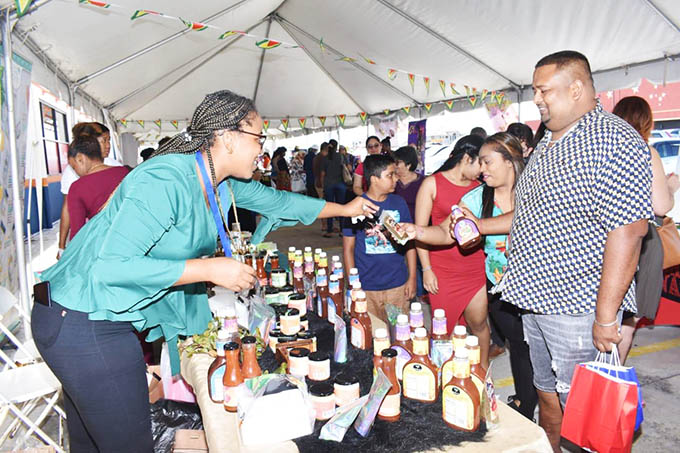Small and medium-sized businesses in the country’s agro-processing sector have told the Stabroek Business that government can best support the development of the sector by paying greater attention to “what the sector says it wants”, rather than simply making decisions in isolation from any meaningful consultation.
Beginning with the UncappeD event at the National Stadium earlier this year, the Stabroek Business has been engaging agro-processors from various parts of coastal Guyana in order to determine the extent to which they are “comfortable” with the relationship between the sector and government. Over the course of a number of random interviews, medium and small businesses in the sector have told this newspaper that for several years government has been ‘missing the bus’ insofar as the nature of its response to the needs of the agro-processing sector is concerned. “The problem with government is that it never really listens to the agro-processors. It makes decisions and goes off in directions without really finding out what we agro-processors need. For example I can tell you that as it is, the Small Business Bureau cannot meet the needs of agro-processors,” one agro-processor told the Stabroek Business.
High on the list of concerns of local agro-processors is what they say has been the failure of government to provide “several suitable factories” in the various regions of the country where agro-processors can focus entirely on their agro-processing. Many of the agro-processors with whom this newspaper spoke said that the sector cannot be expected to produce high-quality products “across the board” when agro-processors production spaces are often limited to their ‘kitchen spaces’ and to ill-equipped makeshift factories. One agro-processor who participated at the recent product promotion event outside the Massy Supermarket on the East Coast Demerara, said that for many years government had promised but failed to deliver on its promise of a production facility for agro-processors.
Local agro-processors, meanwhile, have also expressed concern over what they say is the weakness of systems that exist to ensure the comfort of the sector including what they say are the long delays in securing food safety-related credentials and the lack of high-quality labelling and packaging equipment and facilities which they say are necessary for the “standards growth” of the sector.
Several weeks ago agro-processors attending the UncappeD event had said that they were unsure as to whether their products were likely to find immediate-term acceptance on the international market. “When you look at the quality of presentation on the supermarket shelves in the USA you realise that we in Guyana still have a long road to travel if we are to compete with those products.
Asked whether they believe that their businesses possessed the sustainability to ‘stay the course’ in the face of the existing handicaps, some of the agro-processors who mounted product displays at the recent Massy Supermarket tarmac told Stabroek Business that while they felt that they could hold their own on the local market despite the continued competition from imported products, they felt that when “standards comparisons” are done they have little chance of making meaningful market breakthroughs outside of the Caribbean at this time.









